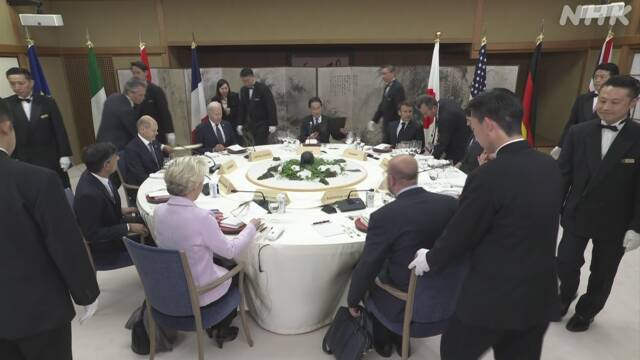At the G7 Hiroshima Summit, discussions were held on the themes of diplomacy and security, and while sharing concerns about various issues with China, the leaders shared the view that it is important to build constructive and stable relations through dialogue on climate change countermeasures and other issues.
The G7 Hiroshima Summit session on the theme of diplomacy and security was held for about one and a half hours before 19 p.m. on the 7th, while having dinner at a ryokan in Miyajima.
In his speech, Prime Minister Kishida stated, "Unilateral attempts to change the status quo by force are never allowed anywhere in the world, and it is essential to demonstrate the strong will of the G1 to fully defend a free and open international order based on the rule of law."
The leaders shared concerns about China on various issues and urged China to act as a responsible member of the international community, while concurring the view that it is important to build constructive and stable relations through dialogue on climate change countermeasures and other issues.
They also shared the importance of peace and stability in the Taiwan Strait once again and confirmed that they would encourage the peaceful resolution of the issue.
Furthermore, with regard to North Korea, the two leaders strongly condemned North Korea's repeated ballistic missile launches with unprecedented frequency and method, and shared the view that they would respond in close cooperation.
On the other hand, with regard to nuclear disarmament and non-proliferation, Prime Minister Kishida conveyed the significance of discussions in Hiroshima, the site of the atomic bombing, and emphasized that maintaining and strengthening the regime of the NPT = Nuclear Non-Proliferation Treaty is the only realistic way to realize a world without nuclear weapons.
In addition, according to Deputy Chief Cabinet Secretary Kihara, some leaders during the session commented that they had "a good opportunity" to visit Hiroshima Peace Park and the Atomic Bomb Museum.

